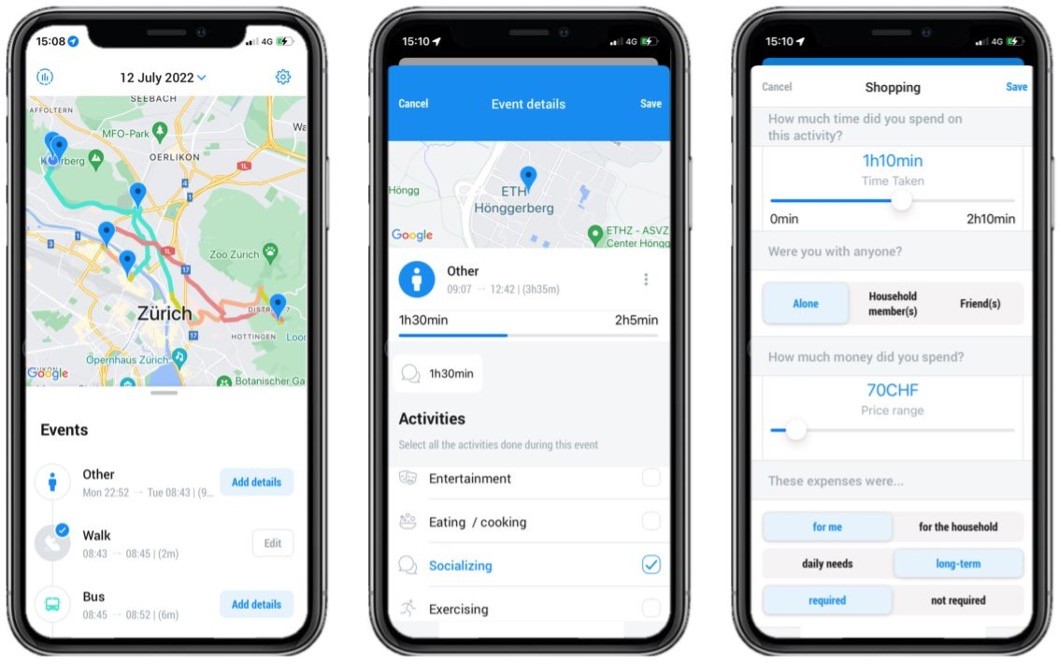
How we spend our 24-hour days varies over time, be it by changes in one’s personal life or external forces like modifications to the built environment or government-level restrictions, as was the case during the recent COVID-19 pandemic. TimeUse+ is a novel survey methodology to collect data on individuals’ time use, travel, and expenditure behaviour to understand these shifts.
A classic (time use) diary study is widely used across diverse disciplines, be it transport, occupational or social psychology, or even marketing. It can be performed via face-to-face interviews, over the phone, using a paper-and-pencil journal, or more recently, employing smartphones. Regardless of the survey medium or research topic at hand, the idea is always the same: a respondent should document specific aspects of their daily life for a given period of time. Though such diary studies serve as a valuable tool, they commonly encounter some undesirable effects like recall biases when a participant has to think back to past experiences or the entire process becoming too burdensome for participants (or costly for the researchers) as soon as the study participation duration exceeds one or two days. Ideally, several study methodologies can be integrated into a single data collection tool to offset any disadvantages. In the context of travel diary studies, using GPS to passively track participants keeps them from having to recall each trip and the specific start and end times. This frees up brain power and patience to have them annotate the tracks with additional information.
User Friendly Facilitated Reporting
TimeUse+ is a study designed to collect rich, longitudinal data about how Swiss residents use and trade off the precious resources of time and money. Taking all of the available knowledge and experience concerning travel diary surveys into consideration, we decided to develop a smartphone app that would track participants using passive GPS technology and facilitate their reporting of additional attributes related to activities performed at each location detected. The study’s main wave ran from July 2022 until February of 2023 with over 1,300 individuals in German-speaking Switzerland, each of whom participated for four weeks.
Notably, TimeUse+ is among the very first studies to look at time use/activity participation together with travel and expenditure behaviour, and a first attempt at a time use study in Switzerland using guidelines from the harmonized EU time use studies. In today’s context, the data serve as basis from which to understand the transformation of how and where portions of the workforce are working from and how the resulting cut in commuting time affects transport, city planning, and how individuals plan out their weeks and days. TimeUse+ has provided insights related to response burden and participant willingness and retention in such surveys, which also contributes to the survey methodology literature. The GPS and diary data will be used to address countless other research questions and will be made openly available in anonymized and aggregated form.
Caroline Winkler is a doctoral candidate at the Institute for Transport Planning and Systems (IVT) at ETH Zürich. Her research focus is on time use behaviour, or contextualizing travel decisions among all other activities a person performs. Her interests stretch into smart survey methods and how they can best be developed to collect rich, high-quality data, while keeping the participant’s experience positive and overall burden low.